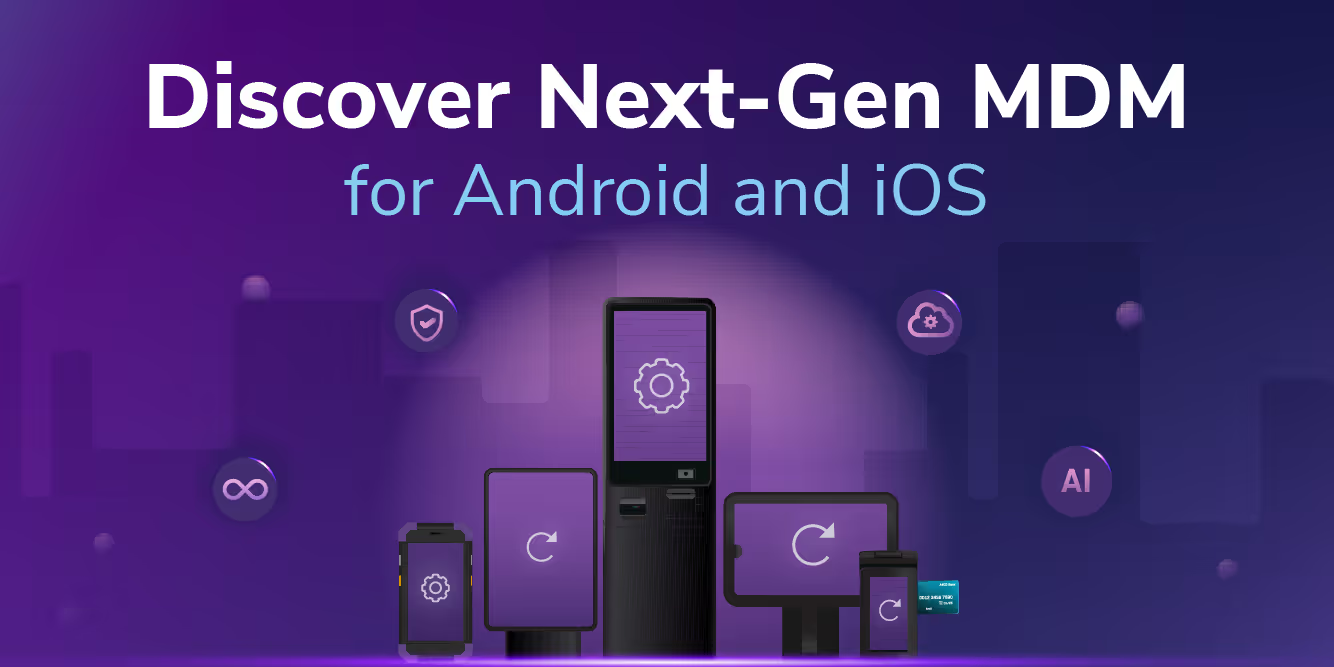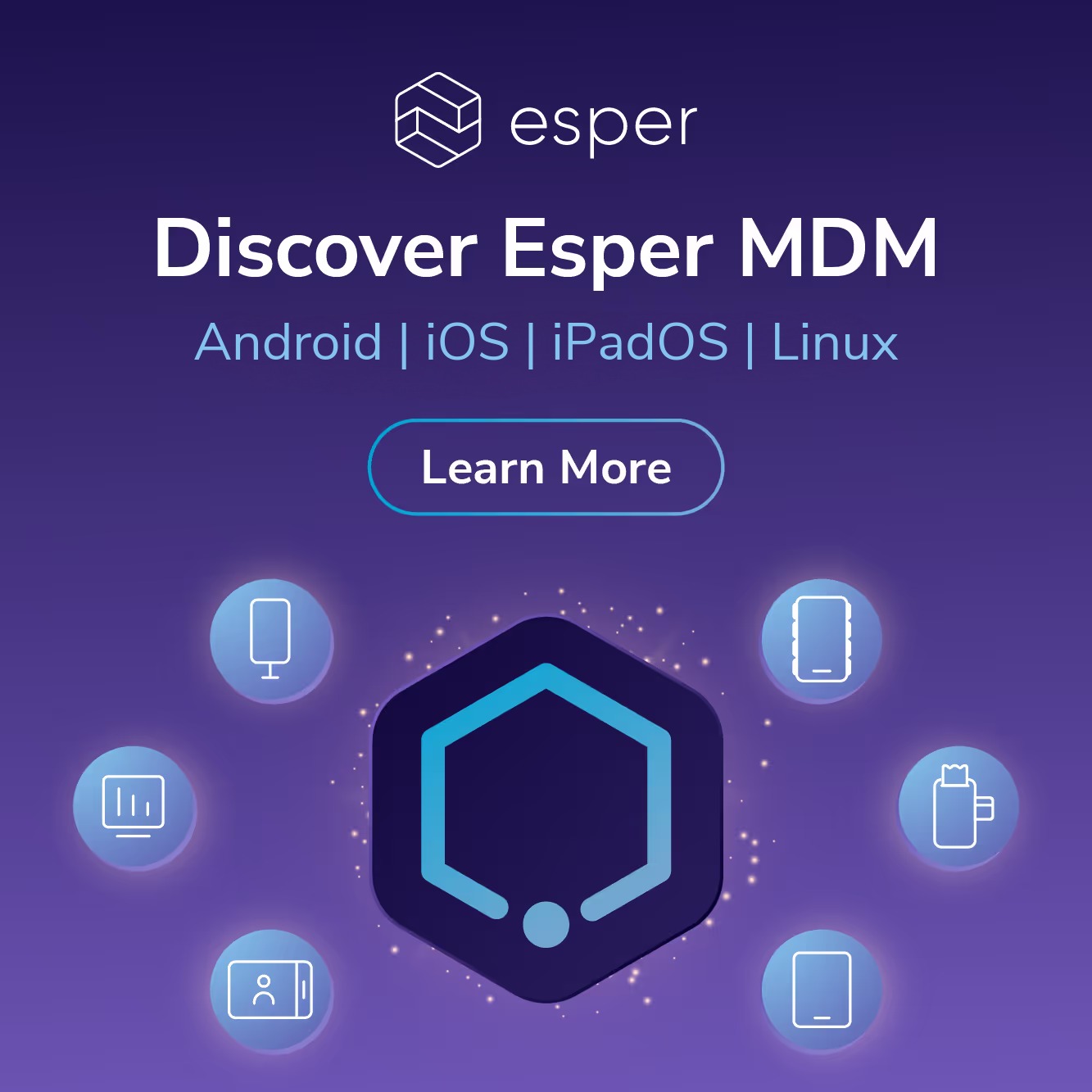It’s that time of year again when we look back on the year and make predictions for what we expect to see across device management in 2024. Over this past year, we’ve had the privilege of working with thousands of professionals at the intersection of hardware and software development, deployment, and maintaining business-critical device fleets. We’ve seen them focus on operational efficiency, source the right hardware as they recover from recent supply chain challenges, and deploy differentiated software to improve customer experiences.
So what’s next? What will continue to grow? What new trends will arise?
AI: Generative AI Comes to Edge Devices
What would a 2024 list be without the mention of AI? 2023 was the year of ChatGPT, GPT4, and perhaps even the beginning of AGI, artificial general intelligence. Regarding AI specifically for edge devices, we saw some customers experiment with conversational AI, using ChatGPT to process things like restaurant or retail ordering on point-of-sale (POS) devices.
But where will it go from there? Often, these devices are in relatively stable environments with reliable cloud connectivity, allowing AI processing to be done in the cloud. But as the use cases shift to more mobile devices, where latency and reliability needs increase, there may be increased demand for AI/ML at the edge. In 2024, not only will we see increasing workloads for updating apps and content files, but we will also start to see workloads rolling out ML model updates to their devices. We’re already seeing signs: startup Airship AI, a computer vision and AI at the edge company, will soon go public via SPAC; Google designed Gemini Nano specifically to run locally on (resource constrained) mobile devices.
Healthcare: Devices Continue a Strong Growth Trajectory in Healthcare Delivery
The post-pandemic economy exposed the over-optimistic forecasts for many device-based industries — but one industry where devices are clearly continuing to grow is in healthcare delivery, from remote patient monitoring (RPM) and telehealth to decentralized clinical trials and physician devices for managing electronic health records (EHR).
Devices increase healthcare access and improve efficiency from appointment check-in to capturing and sharing health records, and even innovative treatments. But as internet-connected device use grows, the surface area for attacks increases, leading to an even greater focus on device security and compliance, especially in healthcare. We’ve heard from customers the importance of device software updates, which is why we built DevOps capabilities into our platform; in 2024, the focus will start with compliance then evolve to SecOps — or even DevSecOps — integrating security into the process of continuous monitoring, integration, and delivery. This will require tighter collaboration across all components of the device solution, from chip to cloud.

Automotive and Beyond: EV Trends Drive Innovation Across Mobility Form Factors
We’re deeply interested in how electric vehicles, and Tesla in particular, have redefined customer expectations regarding connected technology in vehicles. Large touchscreens, connectivity, and over-the-air updates make it possible for cars to actually increase feature functionality post-purchase — this was unheard of even 10 years ago. These factors are spreading to more diverse mobility form factors, such as scooters and motorcycles. Cutting-edge two-wheelers (especially in Asia) have embedded screens that not only provide GPS mapping and access to member subscriptions, but also offer essential device telemetry.
EV infrastructure also needs to be smarter than our existing gas/diesel infrastructure. EV charging stations and battery-swap stations are smarter than traditional gas pumps. They have large customer-facing screens with telemetry data, data such as charging station availability pushed to mobile phone apps, and smart energy distribution in the back end, all incorporated for better user experiences.
In other words, software is increasingly the key product differentiator when it comes to EVs. Therefore, managing that software will be business critical.
Compliance: Device Logs Get Their Day
Granular logging is valuable for increasing security and compliance and enables customers to provide better support, incident response, and troubleshooting. For example, Splunk, a leading observability platform for machine-generated data, helps thousands of enterprises generate and monitor logs for cloud-based websites, applications, and other systems.
But today, logs for device-specific activity are relatively rudimentary. But robust device logs will become more important as more mission-critical functions (like healthcare and mobility) are delivered through devices in 2024 and beyond. For example, most device management software today allows for basic event data, such as when an event starts and when it completes, as well as capturing error events. In 2024, there likely will be demand for more granular logs, including response times and latency, resource consumption, specific error codes, and more.
OS Updates: 2024 is a Big Year for Diverse Hardware (and OS) Refreshes
As many companies spent the last two years tightening their belts and improving business fundamentals, many hardware refreshes were put on hold, stretching the useful life of devices to the fullest. In the 2023 State of Device Management report, we saw that more than three quarters of devices were running operating systems more than 3 versions old. In 2024, many will take the opportunity to get back on track and refresh to the latest and greatest.
One of those areas that will get a re-think is the hardware and operating system for the next 3-5+ years. Customers will choose between Android, Linux, and iOS based on new form factor availability and the new resourcing reality. What new capabilities are required? Can a mid-market Android device now match the performance and reliability of iOS devices? Does it make sense to manage a mixed OS fleet to meet end customers where they’re at?
While many companies will need to re-navigate the hardware buying journey and the myriad decisions that come with it, it will also bring an exciting new opportunity for innovation.
Next-Gen MDM Solutions
FAQ
Keep Exploring















